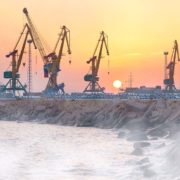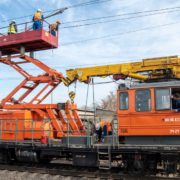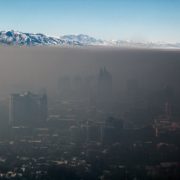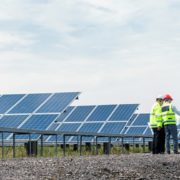
About Dina Azhgaliyeva
Dina Azhgaliyeva is a research fellow at ADBI.Unlocking green hydrogen potential in Central Asia

Green hydrogen could be a game-changing solution for both energy security and ambitious climate targets.
COP27, climate change mitigation, and a just transition for developing Asia

Global communities need to come together to act quickly to reduce greenhouse gas emissions and attain net-zero carbon emissions.
Measuring the impacts of COVID-19 in Central Asia

The COVID-19 outbreak has had wide-ranging impacts on the economies of Central Asia, with uncertainty and protective policy measures contributing to falling demand and supply.
The next steps for meeting nationally determined contributions after COP26

Reductions in emissions of carbon dioxide and other greenhouse gases (GHG) must be achieved in the coming decades to avoid catastrophic global temperature rises. Limiting global warming to within 1.5°C will require rapid, far-reaching, and unprecedented changes in all sectors. GHG emissions in Asia and the Pacific now account for over 50% of the world’s total.
After COP26, developing Asia’s challenge is meeting ambitious climate commitments

Developing Asian countries, such as Indonesia, Kazakhstan, Thailand, and Viet Nam, have announced their net-zero carbon emission targets by mid-century at the United Nations Climate Change Conference (COP26) in Glasgow, Scotland, and financing climate change mitigation has been at the forefront of discussions for making ambitious climate action a reality.
Infrastructure investment key to unlocking emerging Asia-Europe trade corridor

Spanning from the People’s Republic of China through Central Asian countries along the Caspian Sea to Europe, the Trans-Caspian Corridor is an increasingly important channel for transportation and cross-border trade. Considerable financing gaps and other challenges must be addressed to meet its rapidly expanding infrastructure needs.
Infrastructure investment to spur firm performance in Central Asia

Effective infrastructure projects not only construct infrastructure, such as roads, railways, water supply, and electricity, but can boost economic growth in the surrounding region through “spillover effects” (Yoshino, Azhgaliyeva, and Mishra 2021). The infrastructure benefits firms by lowering costs and improving connectivity and the ease of doing business, leading to greater sales and exports.
Green bonds show promise for financing energy-efficient buildings in Southeast Asia

The member countries of the Association of Southeast Asian Nations (ASEAN) have been experiencing a surge in energy demand due to their growing populations, expanding economies, and rising living standards. One reason for this rising energy demand is increased activity in the building and construction sector.
Kazakhstan and the Kyrgyz Republic need more than energy access to promote clean fuels

Air pollution in the cold countries of Central Asia is particularly high during winter due to the consumption of solid fuels for space heating. Evidence-based policy recommendations are needed to facilitate the transition from solid fuel consumption to the use of cleaner fuels for residential heating and cooking, particularly in Kazakhstan and the Kyrgyz Republic. This is important not only for improving health conditions for the inhabitants and visitors in these countries but also for reducing the life-threatening health hazards arising from indoor cooking and heating.
Which financing sources matter for private investment in renewable energy in Asia?

The mobilization of climate finance is critical for limiting global warming to within 1.5°C and preventing catastrophic climate change (IPCC 2018). Annual green investments totaling $1.5 trillion are needed (United Nations 2017). Despite the falling cost of renewable energy technologies, energy investments remain dominated by investments in fossil fuels. In Asia and the Pacific, annual investments fell after 2017 and until 2020 remained below the 2017 level.


Search
Subscribe / Connect to Asia Pathways
Subjects
- Accelerating Progress in Gender Equality
- Addressing Remaining Poverty and Reducing Inequality
- Agriculture and natural resources
- Capacity development
- Climate change
- Economics
- Education
- Energy
- Environment
- Finance and Innovation
- Finance sector development
- Gender
- Globalization and Economic Stability
- Governance and public sector management
- Health
- Industry and trade
- Information and Communications Technology
- Infrastructure
- Making Cities More Livable
- Miscellaneous
- Population
- Poverty
- Private sector development
- Regional cooperation and integration
- Sanitation
- Social development and protection
- Strengthening Governance and Institutional Capacity
- Subjects
- Transport
- Uncategorized
- Urban development
- Video Blog
- Water
Recent Posts
- From Crisis to Resilience: The Evolution of the Banking Sector in Asia and the Pacific
- Tariffs on the Table: What Could Be Asia’s Next Move?
- Investing in Childcare a Win for Women and the Economy
- Flush and Flourish: Upgraded Toilets Can Transform Lives in Rural Asia
- New Ways for Climate Finance and Development in Asia and the Pacific




Recent Comments